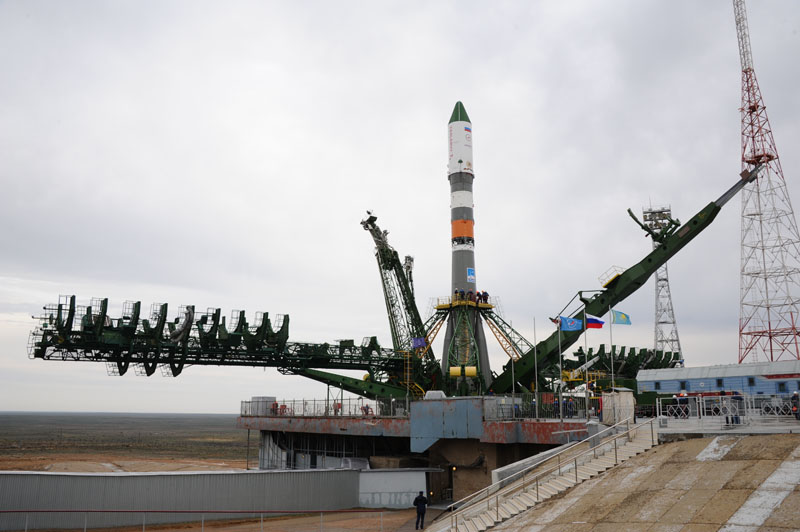Watch the video above: Progress spacecraft spins out of control shortly after launch to International Space Station.

TORONTO – A cargo ship that was destined for the International Space Station will end up falling back to Earth within the next week and scientists don’t know exactly where.
The Russian Space Agency’s Progress M-27M spacecraft launched on Tuesday from the Baikonur Cosmodrome in Kazakhstan carrying 6,000 pounds of fuel, food and supplies for the six orbiting astronauts.
The cargo ship was planned to dock with the space station several hours after launch. However, Russian ground controllers were unable to communicate with the spacecraft and docking was postponed. After two days of trying to communicate with the ship failed, the docking was called off.
Now Russian controllers have confirmed that it can’t control Progress and that it will undergo an uncontrolled re-entry on May 9, give or take two days.
READ MORE: SpaceX launches resupply mission to space station (and it has an espresso machine)
According to Holger Krag, Head of the European Space Agency’s Space Debris Office, the spacecraft will fall somewhere between 51 degrees north latitude and 51 degrees south.
It’s anticipated most of the spacecraft — which weighs seven tonnes — will burn up during reentry.
“However, we cannot exclude the chance that some portion of its structure, for example the heavy docking mechanism or tanks and thrusters, could survive reentry to reach the surface,” Krag said on the ESA blog.
The good news is that, due to the fact that our planet is more than 70 per cent water, anything that survives the burn will end up somewhere unpopulated.
Krag said that on May 8 the agency will be able to better forecast the time of reentry as well as be able to exclude any areas. He also stressed that in over 60 years of spaceflight no one has ever been injured by falling satellite or spacecraft debris and that the risk to anyone on the ground is small.


Comments